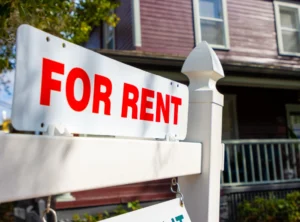Fair Housing Q&A
by Charles Brown
 Q. Are race, color, religion, sex, national origin, familial status and handicap the only protected classes?
Q. Are race, color, religion, sex, national origin, familial status and handicap the only protected classes?
A. These seven categories are the only protected classes under the Fair Housing Amendments Act of 1988. However, many state and local governments often have their own laws and ordinances making housing discrimination illegal, and may include categories in addition to the ones protected by the federal law.
For instance, a city’s ordinance may prohibit discrimination on the basis of marital status. If you refused to rent an apartment to two people of the opposite sex who are not married, but will rent to two people of the opposite sex as long as they are married, you have not violated the federal Fair Housing Act, but the city could take action against you for a violation of the local fair housing ordinance. Besides marital status, other categories sometimes protected by local ordinance or state law include: sexual orientation, source of income, and age. Occasionally, an additional category may be added based on a particular local condition. For example, Cincinnati’s ordinance protects people of Appalachian heritage from discrimination, while Denver’s includes military status as a protected class. If everyone is treated fairly and consistently, there should be no need to be overly concerned with the particular protected groups of a locality.
Q. Can we designate a specific “play area” on a property? We have a lot of children as residents, and we’re very concerned that they will play in the parking areas.
A. There’s nothing wrong with designating a certain area of a property as a “play area.” You need to be careful, however, that your designation isn’t limited only to children. While as a practical matter, children may be the primary users of the play area, adults sometimes “play” too. A rule that says “No playing in the parking lot,” therefore, is fine, but one that says “Children may not play in the parking lot,” is not appropriate. Remember, while safety is a legitimate concern, not permitting playing in any area of the property may result in a fair housing challenge by families with children.
Q. A resident has asked me to make an accommodation to his disability. I understand I’m required to make accommodations, but I’m not sure he really has a disability. Can I ask for verification?
A. Both the Fair Housing Act and Section 504 of the Rehabilitation Act of 1973 require housing providers to make accommodations for people with disabilities when requested. (The nature of the accommodation required differs depending on whether the Fair Housing Act or Section 504 applies.) Some disabilities are immediately obvious, such as the loss of a limb, the use of a wheelchair, or a serious visual or hearing impairment. Other disabilities, which are just as real, are not so apparent, such as asthma or a heart condition (which may prevent a person from walking long distances), a sensitivity to common chemicals, or a mental illness. If the disability would not be immediately obvious to a reasonable person, you may ask for verification of the disability and the need for the accommodation at the time the accommodation request is made. That verification can come from a medical professional, but it might also come from a social service organization that assists people with the particular disability. Once the existence of the disability is confirmed, you should not request further verification or details of the disability. Do not ask for verification if the disability is immediately obvious to you.
Q. In my advertisements, or when giving information over the phone to a prospective resident, can I use directional indications that include references to ethnic or religious landmarks?
A. The Fair Housing Act’s implementing regulations caution that “specific directions which make reference to a racial or national origin significant area may indicate a preference. References to a synagogue, congregation or parish may also indicate a religious preference. Names of facilities which cater to a particular racial, national origin or religious group, such as country club or private school designations, or names of facilities which are used exclusively by one sex may indicate a preference.” The answer to your question, then, is that it is best to avoid the use of directional landmarks that are specifically identified with any particular race, national origin, or religion.
Q. Do I have to waive the pet deposit for a resident with a disability who requires the use of a service or companion animal?
A. If you manage a conventional property that normally allows pets and charges a deposit for animals, go ahead and charge the usual pet deposit for a service or companion animal. If you manage an assisted property, however, the resident may not be able to afford the deposit. If that’s the case, and the deposit would prevent the resident from renting the apartment, you should waive it for a service or companion animal. In either conventional or assisted housing, if you do not normally allow pets, do not create a deposit policy just for service or companion animals. Let the animal in with no deposit payment.
Q. On an assisted property, I have already provided a visual door knock indicator for a hearing impaired resident. He wants a different one that is more expensive. Do I have to provide it?
A. Since this is an assisted property, Section 504 of the Rehabilitation Act of 1973 applied, and it is your responsibility as the housing provider to pay for reasonable modifications made necessary because of a resident’s disability. However, you need only make accommodations (including physical modifications) that are effective; you are under no obligation to do everything to the exact specifications requested by the resident. As long as the door knock indicator you’ve installed is effective, you’ve met your responsibilities under Section 504. Of course, on a conventional property, this would not be an issue, since the resident is responsible for the cost of the modification, and can choose to install whatever model door knock indicator he or she prefers.
Charles Brown is an attorney who invests in real estate in the Austin, Texas area. He is Board Certified in Residential and Commercial Real Estate Law by the Texas Board of Legal Specialization. He can be reached at 512-476-8942.
Copyright 2002-2010 All Rights Reserved. Published with Permission of Author. No part of this publication may be copied or reprinted without the express written permission of the Author and/or REIClub.com.
This article is provided courtesy of the REIClub, a club for people with an interest in Real Estate Investing. Whether you want to expand your investments, hold steady and monitor your current portfolio or youre just curious about Real Estate, you are invited to subscribe to the REIClub monthly newsletter for free, and become an Insider.
See Charles Brown’s feature, Do I Have to Lease to This Jerk?
American Apartment Owners Association offers discounts on products and services for landlords related to your rental housing investment, including rental forms, tenant debt collection, tenant background checks, insurance and financing. Find out more at www.joinaaoa.org.













 Accessibility
Accessibility